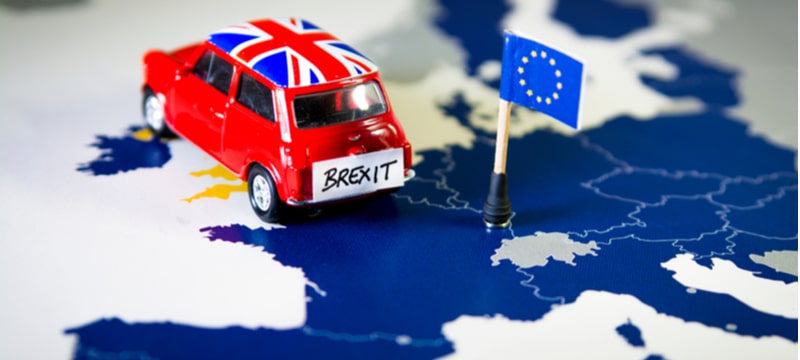
What will Brexit do to the UK CBD industry?
In all honesty, it feels like Brexit has already happened, doesn’t it?
Though the United Kingdom left the EU officially on January 31st there are a lot of details to iron out. Not the least of which is the withdrawal agreement, we are interested in looking at how it will affect the CBD industry in the UK.
You may have heard the term ‘No Deal’ Brexit in the last year. The EU and the UK need to decide on a range of issues that will come under the latter’s exit and their joint future relationship.
There are many issues and one sticking point to date are the issues raised by the border in Ireland. This border divides the Republic of Ireland from Northern Ireland in the United Kingdom. It along with other major points is why we must all prepare in advance and have contingency plans.
Table of Contents
What happens to CBD after December 31st?
December 31st is the deadline for the end of the transition period of the UK leaving after Brexit. But what does that mean exactly?
According to the BBC, one of the sure things is that the United Kingdom will drop out of all of the EU’s main trading agreements. Another is that UK goods would become more expensive to sell and export to the EU owing to the tariffs they’d then be forced to pay at borders along with substantial wait times due to border checks.
- We would operate under WTO rules, meaning tariffs on raw materials from the EU to the UK. This means processed hemp and CBD isolates imported from the EU growers and processors would increase in price.
- Delays through customs means manufacturers will need to store extra raw materials or face possible delays in production.
In short, this could be total havoc to British manufacturers of everything, including CBD. Certain CBD products often raise suspicion due to their appearance and similarity to regular cannabis, these include processed EU hemp used in tea production by some suppliers in the UK. All of this together could add to distress and loss of earnings for many CBD businesses in the UK, both those that sell finished products to the EU and those importing raw CBD materials. CBD legislation is in its infantancy but a key project has been the Novel Foods act which the EU had started.
What is a novel food?
The Novel Foods Regulation was set up in 2018 to improve conditions for food businesses to import new and innovative food into the European market. A ‘novel food’ under EU guidelines is a food that not been consumed to a significant degree in the European Union prior to 15th May 1997.
Novel foods you may know include chia seeds, as well as extracts from food like Antarctic Krill oil. For more on the legal restrictions of selling CBD in the UK click here.
Effect of Brexit on CBD manufacturers
As we mentioned earlier, CBD manufacturers based in the UK will now have a more difficult time selling their produce in mainland Europe. There will be border controls which will cost time and money. CBD whitelabel companies supplying brands in mainland Europe and Ireland will likely lose the contract as they move to a local supplier with no border delays, no custom fees and potentially Vat payments could become a issue.
As the BBC points out, if a trade deal is reached that doesn't eliminate the possibility of border checks. Businesses will need to be vigilant for a seemingly inevitable outcome.
A pause on CBD applications
In July 2020, a report in Vitafoods Insights, stated that the European Commission was having difficulty interpreting the status of CBD products. They told the Director-General of the EC that they did not know how to classify ‘hemp flower extract’. Specifically under the terms of the 1961 UN Single Convention on Narcotic Drugs.
Until an official decision has been reached, there will be a pause in the processing of applications for non-synthetic cannabinoids. This includes CBD products in the UK during Brexit. As far as the EU authorities are concerned, there has still not been adequate evidence to show the safety of CBD. The French court in November 2020 did legislate that CBD was not a narcotic, we await to see how this ruling effects the EU and if it will have a knock on effect in the UK once we leave the EU.
Exporting CBD products to EU
According to an aptly titled report by Harrison-Bricken back in 2019, the prospect of importing CBD into the European Union has been increasingly harder for the last number of years.
At the beginning of 2019, the Novel Food’s category was expanded to encompass a broader span of cannabinoids. This has naturally put CBD into a bit of a bind.
“Without prejudice to the information provided in the novel food catalogue for the entry relating to Cannabis sativa L., extracts of Cannabis sativa L. and derived products containing cannabinoids are considered novel foods as a history of consumption has not been demonstrated. This applies to both the extracts themselves and any products to which they are added as an ingredient (such as hemp seed oil). This also applies to extracts of other plants containing cannabinoids. Synthetically obtained cannabinoids are considered as novel.”
If the Novel Foods application process continues as expected after the pause things will continue to be difficult for CBD suppliers.
What will happen to Hemp businesses in UK after Brexit?
Without any clear deal or no deal, it’s entirely speculative what could happen for CBD going forward.
Both Ireland and the United Kingdom have a substantial and growing market for CBD products. These days it’s possible to find good value CBD products on the shelves of places as disparate as independent coffee shops to Holland & Barrett.
Much of the CBD found in the UK is sourced from the EU, it is delivered with no delays and without borders and tariffs the price has dropped significantly over the last 24 months. Even the UK does a trade agreement with the US and if CBD businesses switched to American suppliers there will be less free flowing trade then we have experienced to date.
- Increased tariffs means increased pricing on CBD raw materials – adding as much as 30% to the price.
- Changes in CBD guidelines means the edibles sold in the UK from March 2020 must have been on sale here prior to Feb 2020, this means companies sourcing EU based products will need to change suppliers.
The issues surrounding the Northern Irish border are also another concern. People in Ireland are worried about borders. Specifically, any hard border crossings that might reignite violent tensions. Not to mention cause problems for those working on opposite sides of the border from where they reside.
When CBD products can no longer flow freely from an EU country to what is essentially a non-EU country, the government will need to have laws and procedures in place, these have yet to be fully ascertained. Uncertainty usually brings added risk, and risk tends to mean reduced profits or increased prices. Certain Brexit issues need to be ironed out. However, it seems a fact is clear it will be more difficult for CBD businesses then some other industries, not just because of the Brexit issues but because of the added complications of the legislation around THC and CBN which both naturally occur in hemp. Using UK based CBD wholesalers for isolates and distillate is key to ensuring your continued supply.
New cannabis legalisation post-Brexit?
The EU has strict regulations on the cannabis industry. Many people have speculated that a no-deal Brexit could lead to full legalisation of cannabis.
At the moment, cannabis is a controlled substance under the Misuse of Drugs Act 1971. CBD exists somewhere in the periphery on the scale of controlled substances. You can often find it in high street retailers such as Holland & Barrett where it tends to be processed CBD in the form of capsules, tinctures or creams from GMP certified facilities with COA's for each batch recording the levels of CBD, THC and any trace cannabinoids. Some smaller businesses selling CBD flower are often raided by police and left with little of their stock due to the similarity to cannabis flower, this however is a tiny percentage of the UK industry where the main focus is on CBD edibles. We CBD believe can help both the economy and indeed certain individuals who feel it benefits them to take CBD.
The full legalisation of cannabis is, admittedly, something of a pie in the sky kind of dream. But it’d be pretty amazing. It would certainly bring a slew of investment opportunities to the United Kingdom and create more jobs.
In short, it’s going to make things incredibly difficult when it comes to bringing in CBD products, prices are likely to increase as most CBD is imported and this additional prices will most likely will be passed on to the consumer.




